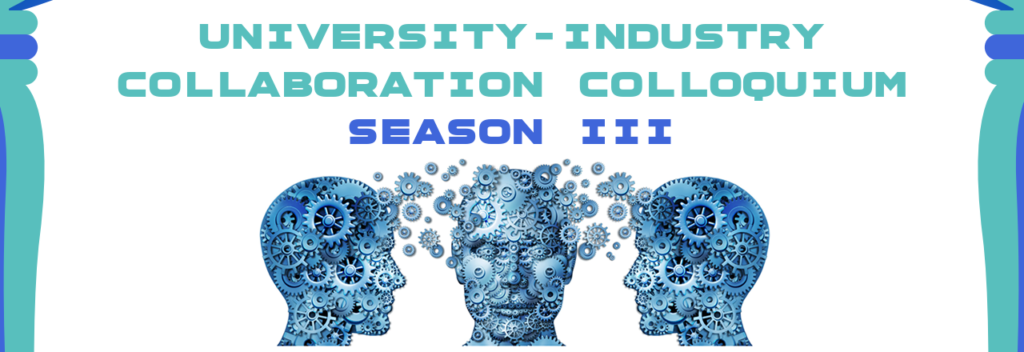
30 - 31 August, 2023 @ HOTEL SKY, SANDTON - Johannesburg
University-industry collaboration is a valuable model to co-ordinate academic research and industrial expertise in creating innovative products, efficient services and technologies. It benefits both parties involved, including access to cutting-edge studies, top talent, and funding. However, it also presents challenges such as conflicts of interest and potentially irreconcilable differences in culture and priorities. For example, academics prioritise knowledge creation and prefer their research to remain free from external influence, while industry gives priority to commercialisation and profit.
Reaching a compromise can be a daunting task but it is also essential for successful synergies. This is why, for the third time, we have put together this colloquium to help establish clear objectives, communication channels, and policies concerning the interaction of academics and industry practitioners. Join this third instalment of Africa’s largest gathering of academia and industry professionals dedicated to combining their strengths for the common good in today’s fast-paced, knowledge-driven economy.
The third season of the University-Industry Collaboration Colloquium recognises that innovation is not just about discoveries and breakthroughs, but also involves funding, commercialisation, and real-world application of those research findings. The event will bring together experts from diverse backgrounds to share their unique experiences and insights on successful university-industry interface. This will be in the form of panel discussions, case studies, interactive workshops and keynotes that will provide participants with opportunities to explore new ideas.
The premium speaker panel will also provide a broader perspective on common pitfalls of collaboration, such as contract negotiation, joint proposal development and joint publications. Close to the end, the event will also feature poster sessions to allow researchers and students to learn from each other and explore potential partnerships as they showcase their projects. This can also open prospects for students to gain hands-on experience in their fields of study through internships, co-op programmes and research projects.
CONFIRMED SPEAKERS
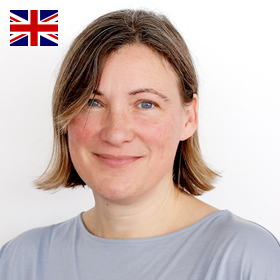
Dr Anne Dobree
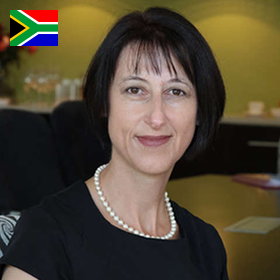
Anita Nel
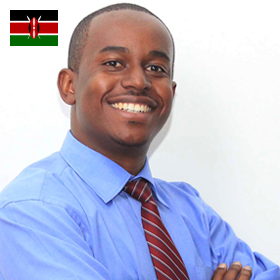
John Matogo
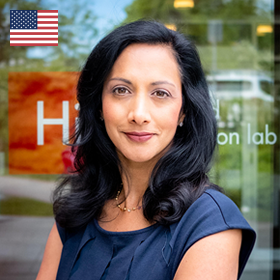
Thara Pillai
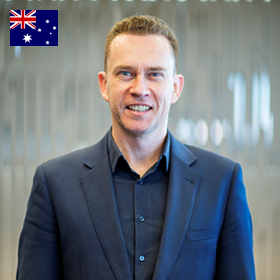
John Szabo
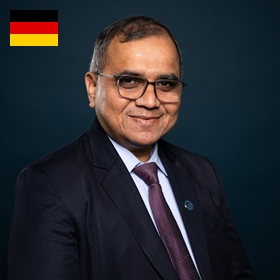
Prof Shiv Triparthi
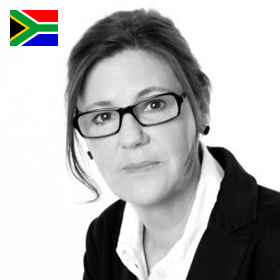
Jacquelene Friedenthal
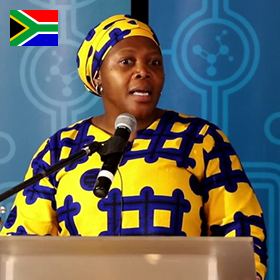
Nontombi Marule
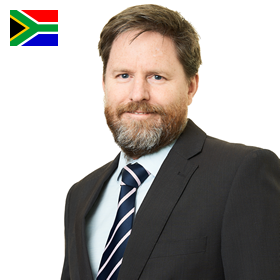
Tim Ball
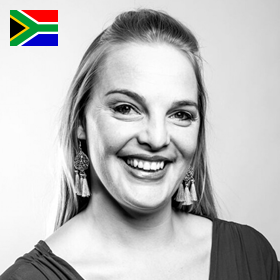
Jetane Charsley
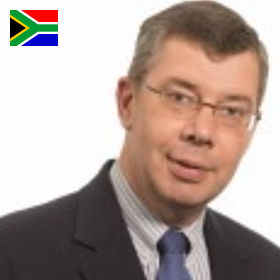
Prof Jurie Van Vuuren
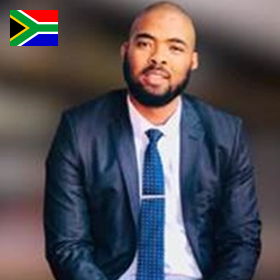
Koena Motloi
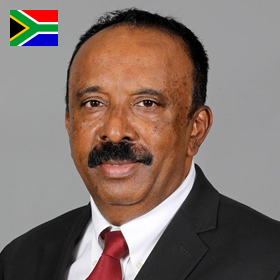
Prof Logan Rangasamy
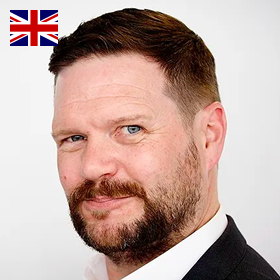
Dr Terry Parlett
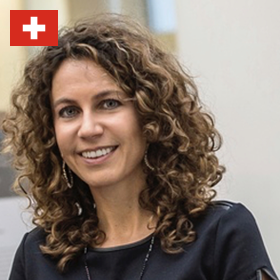
Lien Verbauwhede Koglin
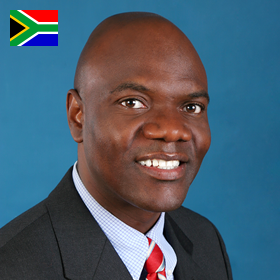
Prof Arthur Mutambara
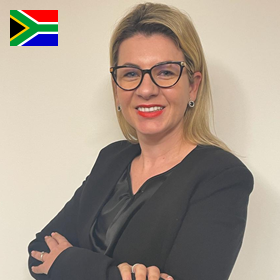
Zanelle Dalglish
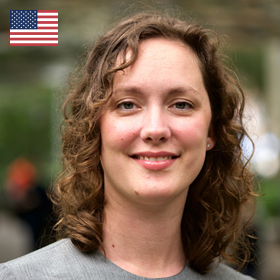
Dr Lauren Dubowski
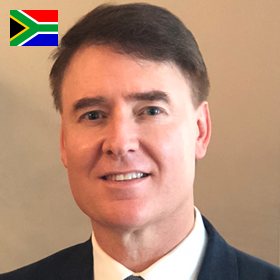
Dr Jacques Ludik

Director of Programming – University of Cambridge Enterprise, U.K
Dr Anne Dobree
A seasoned technology seed investor with 20+ years of experience in commercialising technology from the research of world class Universities, Anne was previously Head of Seed Funds at the University of Cambridge, leading a team producing top performing societal and financial investment results from university people and technologies. She is skilled at bringing together entrepreneurs and investors as well as commercial and technical expertise, aligning the interests of the University of Cambridge, company founders and investors alike to create exceptional investment opportunities.
Anne’s early career includes experience in technology transfer at Imperial College Innovations Limited, in pharmaceutical development at Evans Medical, and in pharmaceutical product training at Information Transfer. She holds a BSc in Medical Microbiology and a PhD in Immunology.
Anne joined the technology transfer team at the University of Cambridge in 2001, and has been involved with Cambridge Enterprise since its foundation in 2006, including as Interim Director just prior to this. She joined the Seed Funds team in 2008 and was appointed Head of Seed Funds in 2011.

Chief Director: Innovation & Commercialisation – Stellenbosch University
Anita Nel
Anita is an experienced technology transfer professional with her roots in technology innovation and venture capital, stretching as far back as 1998. She started her career in technology with Thawte Consulting, a digital security firm, and transitioning through the company’s acquisition by Verisign in 2000, she moved to HBD Venture Capital Fund. At HBD, Anita was involved in investing in various technology start-ups before taking up the challenge of joining and restructuring Innovus, the technology transfer office of Stellenbosch University.
Since she has started at Stellenbosch University, Anita has grown Innovus to become one of the leading university technology transfer offices in Africa and in the process established herself as a thought leader in the industry. As part of this journey, Anita has established the highly successful LaunchLab business incubator at Stellenbosch University and was instrumental in starting and raising the University Technology Fund that provides funding for new technology start-ups at South African universities. As a well-respected contributor to the international technology transfer fraternity, Anita currently serves on the Alliance of Technology Transfer Professionals adjudication panel for registered technology transfer professional applications and holds several directorships on boards of young and upcoming technology companies. She holds a master’s degree in psychology as well as a postgraduate diploma in education and a bachelor’s degree in science.

Corporate Social Responsibility Leader for Middle East & Africa - IBM
John Matogo
John has been instrumental in forging collaborations for IBM with numerous institutions of higher education and ministries of education in the MEA region. The outcome of which resulted having over 3000 certifications and over 50000 trained students and faculty members on the new and emerging technologies including cloud computing, artificial intelligence, quantum computing, Internet of Things, data science, cyber security and many more.
Prior to joining IBM, John was the founding Manager of @iBizAfrica, the business innovation centre at Strathmore University and a faculty member in the Faculty of Information Technology at the same institution, teaching software engineering and computing courses. He was instrumental in coordinating the first ever e-readiness survey of over 50 universities in East Africa while working with KENET. He is interested in the application of technology in educational environments and developing digital skills among young professionals. His research interests include ICTs in education, ICT4D, Free & Open source software and Innovation & entrepreneurship.
He is a senior IEEE member and an active volunteer with IEEE in Region 8 (EMEA region) and is a member and immediate former chair of the Action for Industry sub-committee in Region 8. He served as Chair for the IEEE Kenya Section 2014-2015. John is a former board member of AfriLabs (2012-2015), which is the umbrella body for innovation hubs on the African continent. He previously served as a Council member of the Free and Open Source Foundation for Africa (FOSSFA).

Director of Engagement: Innovation Labs – Harvard University, U.S.A
Thara Pillai
As Director of Alumni Engagement, Thara pilots programs and extends the reach of the Harvard Innovation Labs – both to provide ongoing support to Harvard Innovation Labs’ alumni ventures, and to bring together Harvard’s greater, global community of alumni entrepreneurs.
Thara is a veteran marketing and business development professional who has mentored and advised early-stage ventures in Boston and beyond. She is a Board Member at TiE Boston, a mentor at Founder Institute, and the founder of a networking and mentoring group for female entrepreneurs, RebelWomen. Over the past three years, she held roles at Harvard Business School’s Rock Center for Entrepreneurship, overseeing programs to support alumni founders, from building community to developing programs to advance their ventures. Thara holds an MBA from the University of St. Gallen, Switzerland, a Master’s in Journalism from Carleton University, Ottawa, Canada, and a Bachelor of Applied Arts degree in Broadcasting from Ryerson University, Toronto, Canada.

Director: Strategic Partnerships – University of Technology Sydney (UTS), Australia
John Szabo
A strong advocate for higher education and its impact on industry, government and the wider community, John has vast experience in leading strategic relationships and a track record of working collaboratively across disciplines to establish multi-faceted partnerships. He has a high level of integrity and professionalism with a reputation of building trust and confidence across all stakeholder groups.
He has operated in highly competitive and change driven environments, and has demonstrated a capacity to influence cultural change across large, complex organisations.
In his current position, John’s primary focus is to identify, foster and establish new strategic partnerships that align with UTS’ values and Tier 1 strategic objectives and introduce institutional quality strategic relationship management practices.
Prior to joining UTS, John’s career spanned close to 20 years across higher education, corporate and government sectors. His early career was spent as a senior health consultant and later as the National Business Development Manager for one of Australia’s leading corporate health providers serving both the federal government and private sector.

Dean of the Faculty of Economics – Berlin School of Business and Innovation, Germany
Prof Shiv Triparthi
Prof. (Dr.) Shiv K. Tripathi is Dean of Faculty of Economics and Business Administration at Berlin School of Business and Innovation, Berlin. Durin more than 25 year of his career, Dr. Tripathi has worked with many institutions and universities globally. Earlier he has been Vice Chancellor of Atmiya University, India. He is also board member and India Chapter Lead of Humanistic Management Newtwork. He has more than 90 publication including 10 books. He is also member of two working groups in UN Global Compact Principles for Responsible Management Education.

Science & Technology Counsellor – Embassy of Switzerland to South Africa
Jacquelene Friedenthal
Jacquelene is the Science and Technology Counselor at the Embassy of
Switzerland in Pretoria since 2010. She leads the African location of swissnex: the Swiss
global network connecting the dots in education, research, and innovation. This network’s
mission is to support the outreach and active engagement of partners in the international
exchange of knowledge, ideas and talent.
She works in collaboration with the University of Basel – the Swiss leading house for Africa
to enhance cooperation in education, research and innovation with South Africa primarily.
The instruments for cooperation include the: Swiss South African Joint Research Projects,
Swiss South Research Chairs and the Swiss African Business Innovators.
Jacquelene has previously worked as the Deputy Director for the Department of Science and
Innovation, where she focused on bilateral cooperation with Europe and the Gulf States. She
initiated a number of science and technology agreements including the Swiss South Africa
Science and Technology Agreement that was signed in 2007. Prior to this, she worked at the
Embassy of Denmark on topics of renewable energy and energy efficiency in line with
Denmark’s development cooperation with South Africa and several SADC countries.
A key interest for Jacquelene is Environmental Health and Planetary Health with a focus on
applied research and innovation interlinked with addressing societal challenges at the core.

Director: Innovation and Technology – The Department of Trade, Industry and Competition, SA
Nontombi Marule
Nontombi holds a BSc Honors degree in Chemistry and Applied Chemistry and a Master of Management degree in Innovation Studies. She is responsible for the development of policies & strategies as well as the introduction of new incentives and support instruments for technology development, commercialisation, and innovation to promote enterprise competitiveness and industrialisation. Her unit focuses on strengthening conditions for developing high-growth, technology-based enterprises and promoting collaborative efforts of knowledge generators and innovators.
She previously worked at the Department of Science and Innovation (DSI) as a Deputy Director: Emerging Research Areas. She was responsible for the implementation of the National Nanotechnology Strategy and the development of the National Photonics Strategy. Prior to joining DSI, she was part of the radioanalytical scientist’s team at the Nuclear Energy Corporation of South Africa (Necsa) for more than 6years. She serves as an adjudicator/judge in a number of innovation, technology, and entrepreneurship competitions including Da Vinci’s TT100 and SAB Foundation Social Innovation and Disability Empowerment Awards.

Partner – Webber Wentzel
Tim Ball
Tim specialises in Intellectual Property (IP) law, focusing on dispute resolution and transactions. Tim has extensive experience in patent litigation, particularly in acting for generic pharmaceutical suppliers in matters relating to a broad range of issues, including validity and infringement of claims relating to polymorphs, enantiomers, formulations, fixed-dose combinations, products-by-processes, and second medical uses.
He has also advised on IP rights and managed litigation in several African states on matters involving patents, utility models and trade mark registrations. Tim has advised on, and drafted IP-related agreements in transactions including a petrochemicals merger, restructuring of the South African businesses of international publishers, and licence agreements with university technology spinoffs.
Although his current practice does not include patent drafting and prosecution, Tim’s experience includes drafting and prosecution of patent applications for technologies including water-powered hydraulic rock drills, roof bolting rigs, mine props and pre-stress devices, box folding machines, marine ballast water treatment processes and equipment, and methods and equipment for growing skin cells for autologous grafts.

Head: National Intellectual Property Management Office – Department of Science & Innovation
Jetane Charsley
Ms Jetane Charsley is the Chief Director of NIPMO, a specialised service delivery unit within the Department of Science and Innovation as of March 2022. She started her career at NIPMO in May 2012 as Deputy Director: IP Attorney and was appointed in April 2014 as Director: Regulatory and Compliance. Prior to her appointment at NIPMO she was employed by Kisch IP patent and trade mark attorneys for over 3 years. Jetane completed her Bachelor of Pharmacy and Bachelor of Law (LLB) at North West University, Potchefstroom. She is registered as a patent attorney and pharmacist and is an admitted attorney of the High Court of South Africa. Jetane has a passion for IP education and ensuring that IP finds application and make a real difference and impact in our society.

Chair of Entrepreneurship – University of Pretoria
Prof Jurie Van Vuuren
Jurie is a Professor at the University of Pretoria and Co-ordinator of the Danie Cronje, SAB Chair in Entrepreneurship in the Department of Business Management. He initiated and developed the first Bachelor’s Degree with specialisation in Entrepreneurship in South Africa and was instrumental in developing the Masters and PhD degrees offered by the Department.
At the age of twenty-five, Prof van Vuuren started the first of four entrepreneurial start-ups as a beginning of an entrepreneurial career. In 1992 he started an Entrepreneurship Education and Training Company that since then has trained over 4700 delegates all over South Africa and the African continent. He authored articles in various South African journals and in more than 20 international conference proceedings from all over the globe. He has lectured at various universities in South Africa, the USA, New Zealand, and the Netherlands and in African countries. His corporate entrepreneurship clients include companies like First National Bank, African Life Insurance, Denel, Iscor (Exarro), Kynoch, Transnet, Transnamib, Netcare, Development Bank of Southern Africa, Sanlam and number of other smaller companies. Furthermore Prof van Vuuren was involved with several projects as Management Consultant and Project Leader for both Business Enterprises and Continuing Education at the University of Pretoria for clients such as GEDA (Gauteng Enterprise Development Agency), City of Tshwane Metropolitan Municipality, MerSETA (Manufacturing, Engineering and Related Services SETA), Umsobomvu Youth Entrepreneurial Fund, Bankserv (Electronic Payments and Switching Company), Department of Nursing at the University of Pretoria, Metropolitan Life, Greater Giyani Municipality, SADC Center for Land Related, Regional and Development Law and Policy, Canadian Investment Corporation Agency (Cida), Solidarity, Liberty Life, Sanlam, Metropolitan Life Insurance, XON (Telecommunications), InSeta (Insurance Sector Education Training Authority) and the City of Tshwane – Tshepo project – Project Leader, 10500 delegates trained

Director of Strategy, Planning and Partnerships – National Research Foundation, South Africa
Koena Motloi
Koena has vast experience and in intellectual property (IP) management, innovation, business development, project management, commercialisation management support, stakeholder engagement and support, conflict management, analysis, portfolio management, investment management, investment audit and compliance, business support and advisory services.
He has held various senior management and leadership roles, including Open Innovation Specialist at the Innovation Hub Management Company, responsible for the Open Innovation Exchange (OpenIX) portfolio aimed at connecting Africa’s leading researchers and entrepreneurs with new opportunities to commercialise their innovations. Other previous positions include Technology Transfer and Commercialisation Manager at Mine Health and Safety Council, and various positions at the Technology Innovation Agency. In his current role, Koena leads a unit that is responsible for informing and leading the development of organisational strategy; being the source of organisational and system intelligence; and leveraging relationships to advance the achievement of NRF’s mandate.

Academic Director – Wits Business School
Prof Logan Rangasamy
Logan has worked on economic policy issues and development for over 30 years. During this period, his involvement has been in the capacity of economic advisor at the European Union and senior positions at international institutions and at the South African Reserve bank. His work has covered policy issues related to national (South Africa), regional (Common monetary area, Southern African Development Community, Africa) and multilateral (G20, IMF, OECD etc) interests. Logan has participated in discussions at both technical and high-level meetings with senior policymakers (ministers, central bank governors, presidencies of governments, international investors, rating agencies etc).
He has led country and technical teams at the G20, IMF, AU, SADC, and CMA forums. He has held oversight responsibility for South Africa’s participation at the working groups at the BRICS, G20, IMF, OECD and BRICS. He led South Africa’s technical team in the BRICS Contingency Reserve Arrangement discussions which resulted in the establishment of a US$100 billion facility for BRICS countries. He has chaired the SARB’s technical team in interactions with the IMF, G20 and other continental bodies in Africa. He has articulated African interests at international fora (G20, BRICS and OECD) and has been involved in the Africa Peer Review Mechanism evaluating macroeconomic performance of African countries.
Rangasamy has published many articles in peer reviewed journals on policy issues. He assumed the role of Academic Director on 1 January 2021 where his focus is on establishing “WBS as the leading African Business School firmly embedded among the best business schools internationally”.

Commercialisation Director – University of Cambridge Enterprise, U.K
Dr Terry Parlett
Terry is Commercialisation Director at Cambridge Enterprise since 2018. He was previously the Head of Intellectual Property and Commercial Research at Guy’s and St Thomas’ Hospital, having founded and grown a technology transfer department and investment fund that commercialised NHS Hospital inventions from ‘bedside to business’. Terry sits on a number of boards as a Non-Exec Director and has commercialised technologies and created spin-out companies in the fields of: medical devices; software; imaging; laboratory products; therapeutics; in vitro diagnostics, cell therapies and vaccines amongst others. He has also supported the creation of novel partnerships and MedTech collaborations for co-developing products and services, including joint ventures in pathology services, Hospital Facilities and orthopaedic supply chains.

Innovation Management & Technology Transfer Specialist – World Intellectual Property Organisation (UN), Switzerland
Lien Verbauwhede Koglin
Ms. Lien Verbauwhede Koglin is an innovation management and technology transfer professional at the Technology Transfer Section of the World Intellectual Property Organization (WIPO). She is passionate about the role of IP as a catalyst for conveying research results to the market place and to wider society, to make a positive impact in the world.
Lien has over 20 years of experience at WIPO supporting projects and networks to enhance innovation ecosystems in cooperation with universities, businesses, government, and investment communities. Her current work focuses on providing international good practices and training materials related to institutional IP policies, incentives for researchers and TTO staff, research collaborations, commercialization and entrepreneurship in a global context.
Prior to joining WIPO, Lien worked as an IP Attorney in Brussels (Belgium) and Geneva (Switzerland), and in the legal department of Hewlett Packard Belgium. She collaborates with UCT, NIPMO and SARIMA on a number of projects in the areas of tech transfer.

Executive Director of the Future of Knowledge – University of Johannesburg
Prof Arthur Mutambara
Professor Arthur G.O. Mutambara is the Director and Full Professor of the Institute for the Future of Knowledge (IFK) at the University of Johannesburg (UJ) in South Africa. He is a world-renowned roboticist, academic, author, Pan-Africanist and technology strategist. Professor Mutambara is also the Director of IFK’s Decentralised Artificial Intelligence and Control Systems (DAICS) Research Group and drives the African Agency in Public Health (AAPH) initiative within the Future of Health (FoH) Research Group. He teaches Control Systems in UJ’s Mechanical Engineering and Electrical and Electronic Engineering Departments. He has taught Controls Systems at Massachusetts Institute of Technology (MIT) Aeronautics Astronautics Department (Course 16) and FAMU-FSU College of Engineering, both in the United States.
Professor Mutambara is the Former Deputy Prime Minister of Zimbabwe. Mutambara was one of the three Principals who created and led the Government of National Unity (GNU) from 2009 to 2013. The other two were the late former Prime Minister Morgan Tsvangirai and the late former President Robert Mugabe. As the Deputy Prime Minister, his key functions included assisting the Prime Minister in policy formulation by the Cabinet and supervision of policy implementation by the Council of Ministers. He also specifically supervised the Ministries under the Infrastructure Cluster, such as Energy and Power Development, Transport and Infrastructure, Information Communication Technologies, Water Resources and Development, and Public Works. Professor Mutambara coordinated regional policy formulation within these sectors across SADC and COMESA. Furthermore, DPM Mutambara was in charge of driving three critical national efforts of the GNU: the development of a Shared National Vision, the Rebranding of Zimbabwe and the formulation of a National Infrastructure Master Plan.
Professor Mutambara is a distinguished public intellectual across the African continent and globally, where he has conducted presentations on leadership, management, business and engineering, in addition to motivational speeches and seminars. In the United States, Mutambara was a Research Scientist at the National Aeronautics and Space Administration (NASA), Visiting Professor at the Massachusetts Institute of Technology (MIT), a Visiting Research Professor at the Carnegie Mellon University’s Robotics Institute, and a Professor at the Florida Agricultural and Mechanical University – Florida State University (FAMU-FSU) College of Engineering. In his academic research and teaching, he has received outstanding reviews and praise from students and peers worldwide. Professor Mutambara was also a Management Consultant with McKinsey & Company in Chicago and the Director of Electronic Payments at Standard Bank in South Africa.
He is a Chartered Engineer, a Fellow of the Institution of Engineering and Technology (IET), a Professional Engineer, a Fellow of the Zimbabwe Institution of Engineers (ZIE), a Fellow of the Zimbabwe Academy of Sciences (ZAS), and a Senior Member of the Institute of Electrical and Electronics Engineers (IEEE). In addition to the three volumes on Thought Leadership, Mutambara has written two electrical engineering books widely used in engineering graduate schools in the United States, Europe, China, Japan and Africa: Decentralized Estimation and Control for Multisensor Systems (1998), and Design and Analysis of Control Systems (1999). Prof. Mutambara holds a PhD in Robotics and Mechatronics, and an MSc in Computer Engineering, both from the University of Oxford. He was there as a Rhodes Scholar from September 1991 to March 1995. He graduated with a BSc (Honours) in Electrical Engineering from the University of Zimbabwe in 1990. In 2007, Mutambara was accorded the World Economic Forum (WEF) Young Global Leader status and subsequently attended WEF events from 2007 to 2013 in Davos (Switzerland), China, India and Africa.

Global Leader: Training & Education Affairs – Schneider Electric
Zanelle Dalglish
Zanélle Dalglish’s dedication and passion reflects the success of her position at Schneider
Electric, where she forms part of the company’s global corporate citizenship team.
As the Global Leader Training and Education Affairs, following her previous position as Director of Sustainable Development and Academy, Anglophone Africa, Zanélle plays a leading role in Schneider Electric’s continuous commitment to ethical, corporate citizenship practices which is driven by the company’s ethos of being the most local of global companies.
Zanélle’s position sees her, among others, strengthening Schneider Electric’s government relations which include formalising national agreements and promoting collaboration within the framework of corporate citizenship education and training.
During the last 12 years, Zanélle has held previous roles at Schneider Electric and through various collaborations established the Access to Education network for practical training in the field of energy in Anglophone Africa. The vision of the training network is aligned to the United Nations’ (UN) Sustainable Development Goal (SDG) 4 to ensure inclusive and equitable quality education for youth. She has also set the vision and strategy for Schneider Electric’s corporate social responsibility initiatives in Anglophone Africa where Zanélle and her team have utilised the Schneider Electric Access to Energy offer and solutions which aim to alleviate energy poverty globally, providing access to electricity to communities in line with the UN’s SDG 7 that promotes Affordable and Clean Energy.

Assistant Director: Centre for Collaborative Arts and Media – Yale University, USA
Dr Lauren Dubowski
Lauren Dubowski is an interdisciplinary creative producer who brings experience in film, journalism, mixed reality, theater, and more. She has collaborated on projects with Ado Ato Pictures, Kinhouse Studio, the Łodź Film School vnLab (Visual Narratives Lab), and others. Lauren holds a DFA in Dramaturgy and Dramatic Criticism from the David Geffen School of Drama at Yale. She was a Luce Scholar in Indonesia and a Fulbright research fellow to Poland.

Serial smart technology entrepreneur and Group CEO of Cortex Logic
Dr Jacques Ludik
Dr Jacques Ludik is a Smart Technology Entrepreneur, PhD in AI, Founder of multiple AI companies, Author, International keynote speaker, Global AI Ambassador and award-winning AI Leader with a 25+ years’ experience in AI, Machine Learning & Data Science and its applications around the globe. One of his companies, CSense Systems, was Africa’s first AI company that was sold to a multi-national, General Electric, in 2011. He has also recently co-founded Sustainable Technology Venture Capital (STVC) Fund of Funds with its own AI-driven investment automation platform.
Dr Ludik is the author of “Democratizing Artificial Intelligence to Benefit Everyone: Shaping a Better Future in the Smart Technology Era” and “Neural Networks and Psychopathology”. He has also introduced an MTP for humanity and its associated goals to help shape a beneficial human-centric future and founded Sapiens. Network as a decentralized, human-centric, user-controlled AI-driven super platform. He is currently involved in sustainable technology venture capital and building AI-based companies with data rich platforms that leverages AI technologies to unlock business, customer and societal value at scale.
Dr Ludik is the Founder & CEO of Cortex Group and Cortex Logic, Vive Teen Wellness, Journey Wellness; and Founder & President of the Machine Intelligence Institute of Africa (MIIA) focused on transforming Africa through AI. He was also previously an Executive at Jumo and General Electric as well as an Academic at Stellenbosch University. Dr Ludik currently also serves on the Advisory Boards of Cirrus, Data Science Nigeria, AICE in Kenya, and Verchool and member of the AI Africa Consortium, and is a Swiss Cognitive Global AI Ambassador. In 2019, he is also the recipient of Africa’s AI Leader of the Year Award. See also jacquesludik.com.
PRELIMINARY AGENDA
DAY 1: WEDNESDAY, 30 AUGUST
Event Check-In and Registration
Welcome and Opening Remarks
Rethinking Higher Education in the Context of the 4IR: The Case for an Ecosystem Approach

Prof Arthur Mutambara

Lien Verbauwhede Koglin
In an effort to ensure that university research will have meaningful applications down-stream, government agencies are increasingly
requiring industry involvement in grant applications. In more limited instances, companies are coordinating with government funding
agencies to co-fund research grants.
This session will discuss the following:
- Different funding mechanisms that facilitate university-industry collaborations
- Public-private partnerships, government grants, industry consortia and philanthropic support
- Addressing challenges in securing funding and exploring opportunities for sustainable long-term partnerships

Koena Motloi
Networking Coffee/Tea Break
Generative Artificial Intelligence Challenges for Copyright and Patent Laws
Jetane Charsley
Prof Arthur Mutambara
Dr Jacques Ludik
Networking Lunch

Zanele Dalglish
DAY 2: THURSDAY, 31 AUGUST
Event Check-In and Registration
Opening Remarks and 1st Day Recap
Universities maximise their impact on the world through real-world application of their discoveries?

Dr Terry Parlett
In a rapidly advancing world, the realm of strategy and business models stands out as the most crucial area for innovation, ensuring
long-term success. The process of crafting strategies must now adapt swiftly to keep up with the rapid pace of technological
advancement, the abundance of information, and profound structural changes.
To thrive in this dynamic landscape, business models must undergo constant reinvention. Leaders must possess a heightened awareness of the boundless possibilities concealed within a deluge of updates. As we embark on a new era, strategy is undergoing a transformation that integrates data analytics, next-generation
artificial intelligence, and the enhanced insights provided by human augmentation.

Nontombi Marule
IP rights are intended to encourage investment in the development and implementation of useful innovation, for the public good; but operate by allowing IP proprietors to exclude others from using their innovations. This inevitably sets up conflicts between private rights and public interests. This conflict is particularly acute in the field of healthcare, where significant investment may be required to bring new treatments to market, but the exercise of IP rights stands to exclude patients from these treatments. These issues can be especially difficult in the context of publicly funded research and development.

Tim Ball
Coffee/Tea Break
It is generally accepted that the relevance of academic institutions depends on their ability to meet market demands. In the main academic institutions are meant to identify and address the key challenges confronting society. This session will explore:
- How business schools can remain relevant?
- What role industry can play in enhancing the relevance of business schools?
- How can industry and business schools collaborate to secure the desired social and economic outcomes in South Africa.


- The changing needs of the learner
- New skills in demand in the workplace
- The gig economy and the new workplace/disruption of the workplace

John Matogo
Networking Lunch

Prof Shiv Tripathi
There is a saying that “The best time to plant a tree was 20 years ago. The second best time is now”. Technology commercialisation from the University of Cambridge developed remarkedly over the past 20 years and it is now Europe’s largest innovation ecosystem, with
lots of experience to apply to other environments.
- History of University of Cambridge
- Early interventions in technology commercialisations and entrepreneurship
- Current status of University programmes, and role of industrial players in the ecosystem
- Learnings to apply elsewhere

Chairperson’s Closing Remarks and Networking Opportunity
